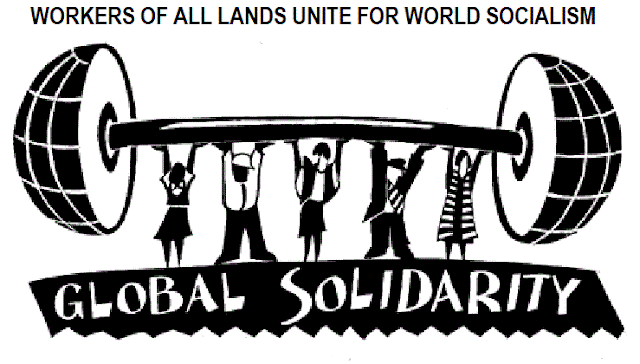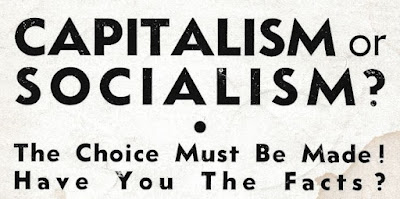Voters do not understand that the real issue is not whether British capitalism should be run by the Conservative or the Labour Party but the urgency of replacing capitalism with socialism. One thing is certain: a proper understanding of what is at stake and how we can authentically change society can only be helped by the exposure of the contemptible creeps who tell us that under Keir Starmer things can only get better. The Labour Party. New ruses. New lies. The question of socialism—the abolition of private ownership of the means of life and the consequent ending of wage-labour and capital—is never mentioned.
The motor of history, according to socialists, is the struggle of classes. Today, in a capitalist society, it is the struggle of the working class of the world for security. Socialists seek to eradicate the basic causes of war, unemployment, poverty and fascism, which it knows are the products of capitalism. National boundaries are obsolete not only because they breed fear; they are obsolete because they choke and distort the inevitable need for political integration in a world where economic integration is already a fact in various ways. No nation can live within its borders alone. Each rival ruling class seeks to integrate the world for itself, for the economic necessities we have mentioned.
Capitalism is a society based on the exploitation of the many by the few. Because it is founded on massive inequality, it requires various means to oppress and keep down the working class and the poor. The ruling classes of the world know the value of “divide and rule,” both as a means to weaken any opposition against them, and as a means to squeeze more profits from the working class. The working class is not only an exploited class – it is also an oppressed class. Workers receive worse education, worse housing and worse job opportunities than the sons and daughters of the rich. Workers are constantly reminded that they do not possess the intelligence or the capabilities of those above them on the social ladder. Workers are disadvantaged at every step, stressed under financial and family constraints, forced to work in dangerous jobs and, therefore, more likely to suffer from various physical and mental ailments. In turn, they are then forced to accept the poorest quality health care. capitalism – a system based upon the exploitation of wage labour for profit – was founded on enslavement and oppression from its beginnings.
Everyone accepts the idea that the oppression of slaves was rooted in the class relations of exploitation of that system. Fewer recognise that under capitalism wage slavery is the pivot around which all other inequalities and oppressions turn. Capitalism used racism to justify plunder, conquest and slavery, but as Marx pointed out, it also used racism to divide and rule – to pit one section of the working class against another and thereby blunt class consciousness. The bosses consciously foster divisions among workers in order to weaken and defeat their struggles for better conditions. The very conditions of capitalist exploitation and competition also help to foster divisions among workers. While capitalism propels workers toward collective forms of struggle, it also forces them into competition. The unremitting pressure from a layer of unemployed workers, which exists in most economies even in times of ‘full employment,’ is a deterrent to struggle – a constant reminder that workers compete for limited jobs which afford a decent standard of living. By oppressing a section of the working class on the basis of its sex, race, sexual orientation, language or national origin and driving those workers’ conditions of existence down, capitalism is able to drive the conditions of all workers down. A white worker may perceive that their conditions of work and pay are better because of the lower pay received by Black workers. The reality, however, is that the bosses use the conditions of the lowest-paid workers to drive the conditions of all workers down. The worse the pay and conditions of the most oppressed workers, the more the bosses can lower the pay of all workers. Conversely, when the conditions of the most oppressed sections of the working class are improved, the conditions of all workers improve.
The working-class struggle cannot be successful unless workers are able to throw off the yoke of oppression that divides them. That is why, as a class, workers not only do not benefit from oppression but also have a common class interest in fighting oppression. Capitalism would have no need for dividing workers if there were not another dynamic at work – the tendency for capitalism to compel workers to collectively fight back against the various aspects of their oppression and exploitation. To engage in class struggle it is not necessary to “believe in” the class struggle. The interests of workers, as a group organised by capital, lead them to struggle. The working class moves toward class struggle insofar as capitalism fails to satisfy its economic and social needs and aspirations. There is no evidence that workers like to struggle any more than anyone else; the evidence is that capitalism compels and accustoms them to do so. For any oppressed group to fight back there is a need for hope. And that is to be found, not in the isolation of oppression but in the collective strength of the working class. For the Socialist Party the notion that the working class, by liberating itself, will liberate the whole of humanity, is central.


.jpg)



